Niger
Niger is on the cusp of its first-ever peaceful handover between elected presidents, following the presidential and legislative votes on Sunday.
Now residents await to see who will be their next leader but Niamey residents are conflicted on if the election was fair.
"To say that these elections are safe, I don't give that guarantee, but I know that the people came out, the people voted," said Amadou Taïrou, a cultivator in Niamey.
"We've been told for three years that we were going to do a biometric vote, which means that when you've voted once, you won't vote twice."
But he said "They say: "Well, there is no biometrics, it's not secure" and with the voter's card we have, we can vote several times because there is nowhere to put a stamp, a proof that you have voted already."
But others said they believed there were no voter irregularities.
"There were no major incidents in the conduct of the election. I am confident," said Djabril, a beverage vendor in Niamey.
"We have to wait for the results, but I trust the organisation, I trust the CENI (the Electoral Commission)."
The elections mark a major change in leadership for Nigerians.
Who is in the running?
Incumbent President Mahamadou Issoufou, who was elected in 2011 after a 2010 coup, is voluntarily stepping down after two five-year terms, unlike many other African leaders.
Some 30 candidates are in the running for the top job.
Issoufou's hand-picked successor Mohamed Bazoum, 60, a former interior and foreign minister is the favourite.
He has campaigned on a platform for security and education.
Tackling jihadism and poverty
Niger is being battered by jihadists on two fronts -- on its southwestern border with Mali, and its southeastern frontier with Nigeria.
Four thousand people in Burkina Faso, Mali and Niger died last year from jihadist violence and ethnic bloodshed stirred by Islamists, according to the UN.
In Niger itself, hundreds have died in the past five years, and hundreds of thousands have fled their homes.
The economy, already fragile, has suffered devastating blows.
Around 42 percent of the population lived last year on under $1.90 (1.56 euros) per day, according to the World Bank, while nearly a fifth of its surging population of 23 million relied on food aid.
Other prominent hopefuls are two former heads of state, Mahamane Ousmane, 70, and Salou Djibo, 55.
Bazoum's main rival, former prime minister Hama Amadou, 70, was last month barred from contesting the vote because in 2017 he was handed a 12-month term for alleged baby trafficking -- a charge he says was bogus.




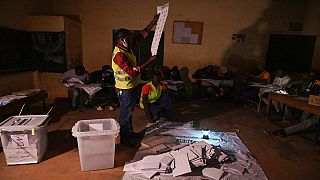
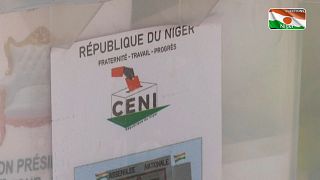
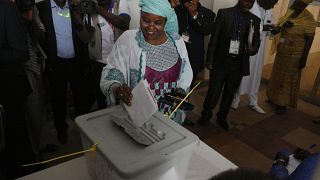
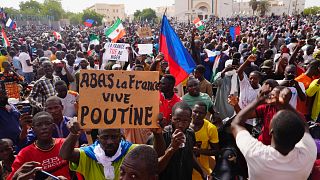
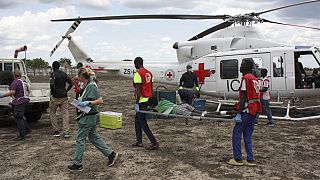
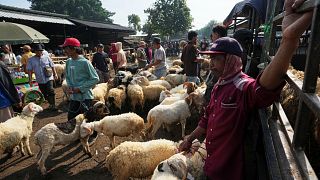



Go to video
AU names Burundian president special envoy for Sahel region
Go to video
Alliance of Sahel States puts on show of unity through inaugural games
11:15
AI drones lead breakthrough against malaria in Africa [Business Africa]
Go to video
Protesters gather in Ivory Coast, demand Thiam's return on electoral list
01:00
Ivory Coast: opposition candidates barred from electoral lists
Go to video
Black smoke from Sistine Chapel chimney signals no pope elected